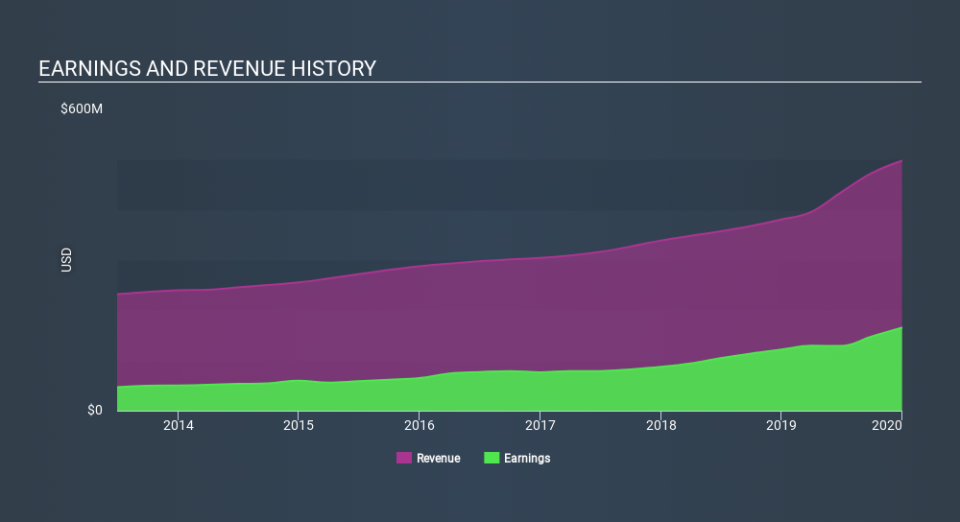One Thing To Remember About The Independent Bank Corp. (NASDAQ:INDB) Share Price

If you're interested in Independent Bank Corp. (NASDAQ:INDB), then you might want to consider its beta (a measure of share price volatility) in order to understand how the stock could impact your portfolio. Modern finance theory considers volatility to be a measure of risk, and there are two main types of price volatility. The first category is company specific volatility. This can be dealt with by limiting your exposure to any particular stock. The second sort is caused by the natural volatility of markets, overall. For example, certain macroeconomic events will impact (virtually) all stocks on the market.
Some stocks are more sensitive to general market forces than others. Beta can be a useful tool to understand how much a stock is influenced by market risk (volatility). However, Warren Buffett said 'volatility is far from synonymous with risk' in his 2014 letter to investors. So, while useful, beta is not the only metric to consider. To use beta as an investor, you must first understand that the overall market has a beta of one. A stock with a beta below one is either less volatile than the market, or more volatile but not corellated with the overall market. In comparison a stock with a beta of over one tends to be move in a similar direction to the market in the long term, but with greater changes in price.
Check out our latest analysis for Independent Bank
What does INDB's beta value mean to investors?
While history does not always repeat, this level of beta may indicate that the stock price will continue to be exposed to market risk, albeit not overly so. Beta is worth considering, but it's also important to consider whether Independent Bank is growing earnings and revenue. You can take a look for yourself, below.
Could INDB's size cause it to be more volatile?
Independent Bank is a reasonably big company, with a market capitalisation of US$2.2b. Most companies this size are actively traded with decent volumes of shares changing hands each day. We shouldn't be surprised to see a large company like this with a beta value quite close to the market average. Large companies often move roughly in line with the market. In part, that's because there are fewer individual events that are signficant enough to markedly change the value of the stock (compared to small companies, at least).
What this means for you:
Since Independent Bank has a beta close to one, it will probably show a positive return when the market is moving up, based on history. If you're trying to generate better returns than the market, it would be worth thinking about other metrics such as cashflows, dividends and revenue growth might be a more useful guide to the future. In order to fully understand whether INDB is a good investment for you, we also need to consider important company-specific fundamentals such as Independent Bank’s financial health and performance track record. I highly recommend you dive deeper by considering the following:
Future Outlook: What are well-informed industry analysts predicting for INDB’s future growth? Take a look at our free research report of analyst consensus for INDB’s outlook.
Past Track Record: Has INDB been consistently performing well irrespective of the ups and downs in the market? Go into more detail in the past performance analysis and take a look at the free visual representations of INDB's historicals for more clarity.
Other Interesting Stocks: It's worth checking to see how INDB measures up against other companies on valuation. You could start with this free list of prospective options.
If you spot an error that warrants correction, please contact the editor at editorial-team@simplywallst.com. This article by Simply Wall St is general in nature. It does not constitute a recommendation to buy or sell any stock, and does not take account of your objectives, or your financial situation. Simply Wall St has no position in the stocks mentioned.
We aim to bring you long-term focused research analysis driven by fundamental data. Note that our analysis may not factor in the latest price-sensitive company announcements or qualitative material. Thank you for reading.

 Yahoo Finance
Yahoo Finance 
